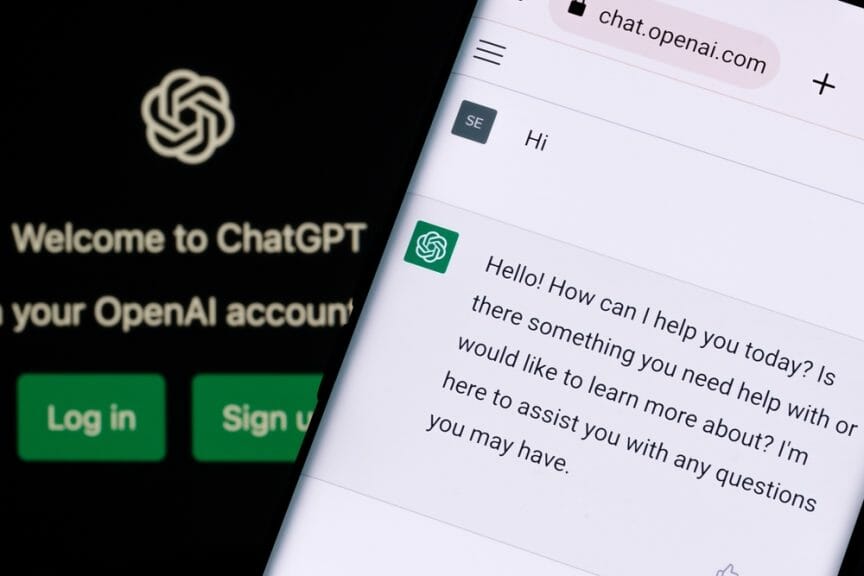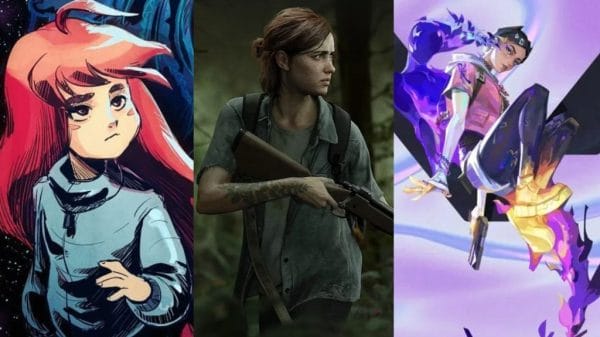Artificial Intelligence (AI) has significantly impacted various industries in recent years, from healthcare to finance, and it is now poised to revolutionize the entertainment industry. With its ability to process vast amounts of data and make predictions based on patterns, AI can play a crucial role in enhancing the entertainment experience for both content creators and consumers. From predicting box office success to creating realistic virtual characters, AI has the potential to transform the entertainment landscape in ways that were once unimaginable.
Artificial Intelligence is so powerful, in fact, that it wrote the above introduction. All it took was for me to tell it exactly what I wanted it to write, and within ten seconds, I had an informative, coherent, and well-written opener.
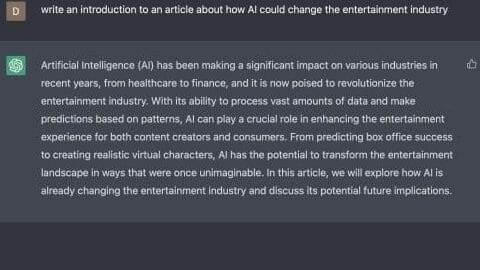
While A.I.’s ability to write such pieces of text is impressive, it doesn’t even demonstrate a percentage of what programs such as ChatGPT are capable of. Some in the entertainment industry have recognized the potential behind Artificial Intelligence in generating scripts, codes, lyrics, and speeches – anything there is to write, ChatGPT can do it, and it can do it well.
Artificial Intelligence has a promising future in the entertainment sector, with it being used in many big movie sets, bestselling albums, and inspiring speeches. We anticipate seeing even more creative applications for the technology as it advances. For instance, ChatGPT can be used to develop virtual actors who can communicate with live actors in a manner that feels authentic and human. For example, Hollywood has used AI for years, with Bruce Willis being simulated in a Russian phone advertisement and Val Kilmer’s voice being restored in Top Gun: Maverick. By pushing the limits of what is feasible in entertainment, such endeavors can help to provide audiences with more immersive experiences.
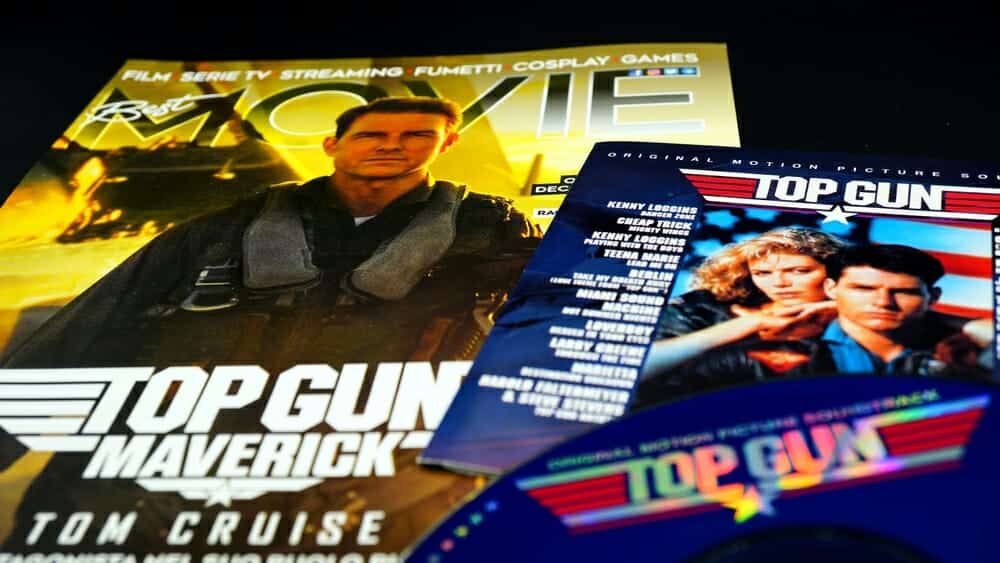
It is debatable, however, whether Artificial Intelligence is entirely positive in the ways it will change the entertainment industry. Some argue that the humanity of such artistic projects is taken away by getting programs such as ChatGPT to do all the work when it comes to writing lyrics, scripts, and speeches. While AI does a near-perfect job of replicating human-like conversation, it can be argued that getting it to write love ballads and meaningful poetry doesn’t provide the vulnerable, emotion-inducing end product that would come from it being written by a real person with a conscience and genuine experiences. After all, the way such programs work is through the combination of massive volumes of data and computer algorithms that string together words to mimic the writing styles of real people – it’s just a computer at the end of the day.
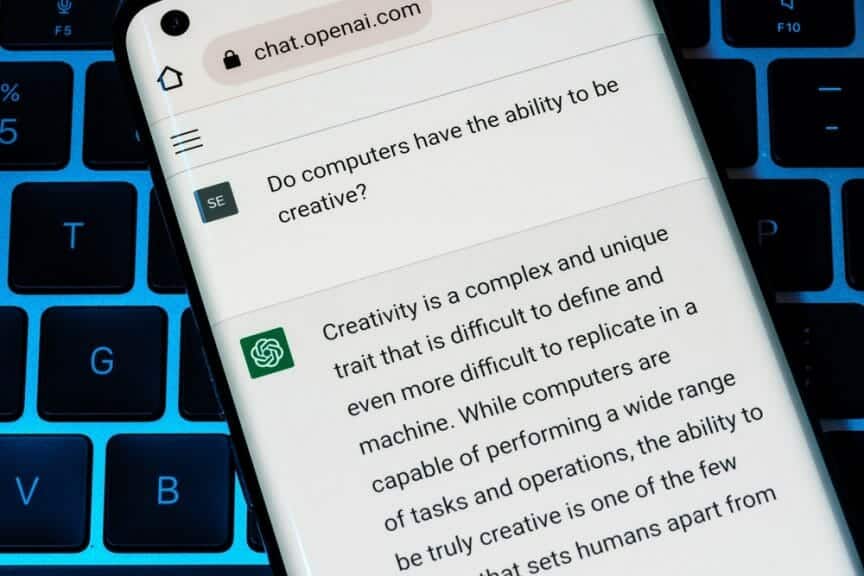
Credit: Shutterstock/Ascannio
Despite the downsides to using programs like ChatGPT for artistic purposes, entertainers of all caliber are using the technology to their benefit – AI-powered technologies can help content creators generate more personalized and immersive experiences, optimize distribution, and streamline production workflows. Additionally, AI-powered tools can aid in content curation, recommendation, and analysis, helping viewers discover new content and improve engagement.
However, integrating AI into the entertainment industry raises significant ethical and societal concerns like privacy, bias, and job displacement. In the future, it is crucial for industry stakeholders, policymakers, and society at large to actively engage in ongoing discussions about the responsible use of AI in entertainment and to ensure that its benefits are accessible to all. The future of entertainment looks promising, with AI serving as a powerful ally in unleashing creativity and innovation – as long as we use it wisely and ethically.
Read this article on Trill Mag – How Much Potential does ChatGPT Really Have?


